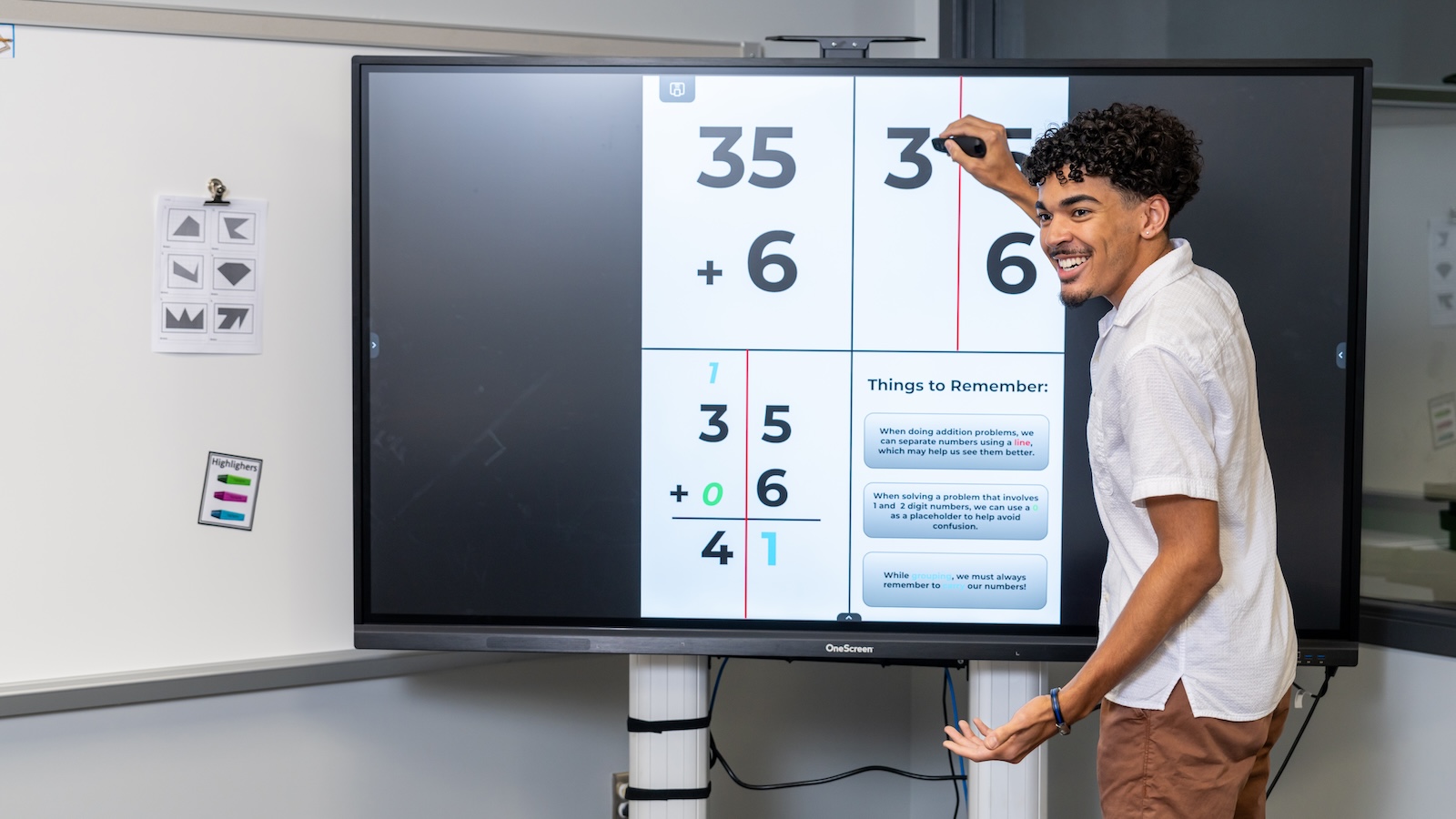Educator of the future
Gabriel Thomas uses his passion for education to support students with disabilities
Special education has always been a part of Gabriel Thomas’ life in one way or another.
It is through his personal experiences with siblings on the autism spectrum and his passion for helping others that Thomas was moved to pursue a career in special education.
A naturally outgoing and vibrant individual, he has always been drawn to building community because of those who educated him.
“Something I value is what it takes to be an educator. You have to have a passion for doing this. You have to do it because it’s something you feel fulfilled by,” Thomas says. “I realized my passion for learning was very much influenced by great teachers I had in high school. I decided at that point I wanted to create that type of environment for future students as well.”
He has navigated life as the only self-identified neurotypical sibling of three and has seen firsthand his siblings being defined by their disabilities. Thomas’ 12-year-old sister has Down Syndrome and is on the autism spectrum and his 19-year-old brother is non-verbal and also on the autism spectrum.
I realized my passion for learning was very much influenced by great teachers I had in high school. I decided at that point I wanted to create that type of environment for future students as well.
Gabriel Thomas
Throughout his life, Thomas’ mother was an outspoken advocate for his siblings and others with disabilities, which enabled him to learn about disabilities and special education programs from an early age.
Seeing the challenges his brother has faced since reaching high school made Thomas want to research if others on the spectrum believed this and felt that same way based on their experiences and the odds consistently stacked against them.
“There’s this belief that people with a disability can only go so far. Because of this, people treat my brother based on what he is labeled as and question how far he can go with his diagnosis,” Thomas says.
Based on his research interests, Thomas was awarded a summer research grant through the College of Education’s special education program through which he pursued his research project, Empowering Transition: Exploring Factors Shaping Post-Secondary Paths for Students with Disabilities.
Through the mentorship of professors Briella Baer Chen, Ph.D., and Gregory Knollman, Ph.D., Thomas spent the summer researching and conducting one-on-one interviews with parents and guardians of students with disabilities to better understand their perception of their child’s outcomes after secondary education.
We’re taught as teachers to presume competence in our students, and it's sad to hear those experiences that are common in the world of disabilities ... I want students to feel supported by me. The data made me think about what I should be doing and what others should be doing as educators.
Gabriel Thomas
With the limited existing data Thomas found on his research question combined with the qualitative interviews he conducted, his findings suggested that the label of one's disability and the perception of the student or their parents did influence how they perceived post-secondary education outcomes.
Thomas found some of the responses disheartening, further reinforcing his belief that individualized and inclusive learning options are important for educators to make available for students with disabilities.
Gabriel's research findings suggested that the label of one's disability and the perception of the student or their parents did influence how they perceived post-secondary education outcomes.
“We’re taught as teachers to presume competence in our students, and it's sad to hear those experiences that are common in the world of disabilities,” Thomas says, “I want students to feel supported by me. The data made me think about what I should be doing and what others should be doing as educators.”
Co-mentor Knollman worked closely with Thomas to help refine his research subject area and support data collection.
"As faculty mentors, we were honored to work with Gabe," says Knollman, "It was amazing to see in a few short months how he was able to take an idea he conceptualized in one of his education courses and transition through the process of developing the idea into a defined set of research questions, examination of the background literature, navigation of the IRB approval process, set up of a study and launch of the research project."

With his research complete, for now, Thomas is in the first phase of his internship at Pine Grove Middle School where he is an assistant teacher in a 6th grade math class.
Alongside his mentor teacher, Thomas helps prepare and compile individual education programs (IEPs), 504 plans, accommodations and supplementary aids for students with disabilities—all vital items to support students with disabilities, which are required by law and that he will work with daily in his future career.
“The College of Education is committed to engaging undergraduate students in academic growth, innovation and the advancement of knowledge,” Mullen says. “Gabriel Thomas’ research project adds to our vibrant student research culture.”
Having taken his first foray into research, Thomas looks forward to being part of the next generation of educators.
“I feel confident in my ability to be a good special educator when I’m in the classroom. I feel very optimistic and excited about what is going to happen next.”